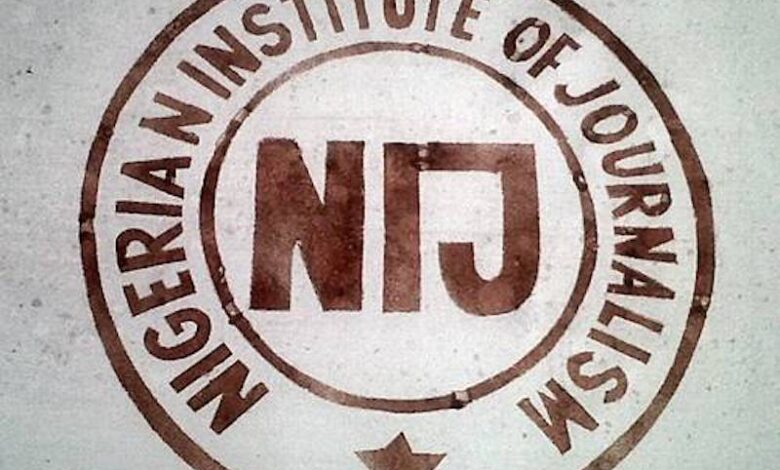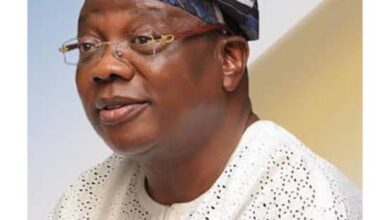50 YEARS OF THE NIGERIAN INSTITUTE OF JOURNALISM

Fifty years is a significant milestone in the life of anyone, organization, or nation. The Nigerian Institute of Journalism (NIJ) – Africa’s Center of Excellence for Media Training is celebrating in an instructive way.
Three journalism training institutes were created in Lagos, Nigeria, in 1963, focused primarily on the training of journalists and professionals (on the job) in the field of journalism.
Kenya and Tanzania offered human assistance to the school with the help of the International Press Institute (IPI), The Poynter Institute of Media Studies, St Petersburg, Florida, United States. Dr. Boye Ola (one of Nigeria’s finest photojournalists) was present. Lekan Otunfodurin and I both attended Poynter. Both of us are now part-time lecturers at the National Institute of Justice.
The objective of the NIJ was simple: to be Africa’s top and most prestigious mass communication and journalism educational institution; “the Centre of Communication Excellence.”
Read Also: Police rescued three kidnapped victims and recovered three AK-47 rifles in Zamfara
The mission was as expected, an institution dedicated to mass communication and journalism training and retraining through the use of a comprehensive curriculum and cutting-edge technology in an environment that promotes critical thinking, learning, good character, professionalism, ethical standards, research, and productivity.
The school began with an expatriate Director. Chief Dayo Duyile, the institution’s longest-serving leader, brought the era to a close. I was a post-graduate student during his administration, from 1992 to 1993. Ladan Salihu, former DG NBC; Mrs Sherifat Ahmed, Director FRCN, Abuja National Station; Osa Director, Publisher, and Lawyer; Tunde Ajibike, Director in the Ministry of Information, Oyo State; and Dotun Adenijo, former Registrar, NIJ, are just a few of my classmates.
Dr. Elizabeth Ikem, arguably the first Ph.D. holder to lead the institution, brought panache to the position and transformed NIJ from a training school to a monotechnic. She increased the number of experts and academics she was looking for. Mr. Okey Nwachukwu, the Executive Director of News at Voice of Nigeria, granted her permission to teach online journalism, multimedia, and new media part-time in 2009. After my presentation on Online Journalism at Professor Ralph Akinfeleye’s post-graduate class at the University of Lagos Mass Communication Department, Dr. Savage was essential in securing this opportunity.
Read Also: Clerics Mark a Special Day of Prayer For National Commission for Refugees, Migrants and Internally Displaced Persons
After completing the Higher National Diploma Certificate program, NIJ students are now eligible to participate in the National Youth Service program (NYSC). Mr. Gbemiga Ogunleye, a lawyer and journalist, gave value to the school’s products and services. He was the driving force behind the National Institute of Justice’s rebranding project. He established a high bar that Gbenga Adefaye, former President of the Nigerian Guild of Editors (NGE) and current Managing Editor / Editor-In-Chief of Vanguard Newspapers, has surmounted.
Gbemiga Ogunleye presented to the school a wonderful private sector initiative. Corporate organizations were invited in to lend a hand and provide technical assistance. The classrooms were equipped with air conditioners and projectors for teaching, and Access Bank came with a fresh new generator set. Gbemiga Ogunleye, like Dr. Elizabeth Ikem, was a school administrator and teacher. He enlisted the help of the National Communications Commission (NCC) and the US Embassy Public Affairs to set up computers, audio devices, and Internet access.
In every way, the Adefaye age is exceptional. He completed the PEN RADIO Radio Studio project. The NBC granted him a broadcasting license. The radio station is currently online and broadcasting in real time. He’s now on the hunt for a radio transmitter. He is actively in talks with international development partners and media NGOs, and he has continued Ogunleye’s rebranding initiative. The founding organizations of NIJ’s Code of Ethics is the first indication that you are indeed in a journalism school. The ethics of the profession must guide you. The NGE, NUJ, NIPR, and APCON were prominently displayed on the stairwell’s wall. The school also has a website that is up and running. Dr. Elizabeth Ikem created the website originally, with my help as Adjunct Faculty – New Media. We taught NIJ students how to maintain the website.
Read Also: MTN, Airtel, and Mafab get NCC approval for 5G spectrum auction
Each provost, as well as full-time and part-time teachers, are unwavering in their commitment to the vision and purpose statements. Industry experts are on hand at the academy to help students blend theory and practice. Print journalism, broadcast journalism, and public relations and advertising are among the courses offered at the school (PRAD). Specialized programs in writing, editing, photo journalism, and video production are also available.
Today, the National Institute of Justice (NIJ) promotes media industry stars in both the public and private sectors. Mrs. Abike Dabiri-Erewa, NTA (Diaspora Commission); Iyabo Wale-Eri, NTA; Mrs. Sherifat Ahmed, Radio Nigeria Abuja National Station; Gbenga Onayiga, FRCN; Mrs. Mary Atolagbe; Dr. Qasim Akinreti of Voice of Nigeria; John Momoh; Ini Thompson of Channels TV; Mrs. Olufunke Fadugba, Biola Aberua
Dr. Olusanya Awosan, Public Relations, Publisher, Nigerian Essence and former Special Assistant on Public Relations to President Jonathan; Mrs. Dupe Gbadebo, former editor, Daily Times; Dapo Olorunyomi, of Premium Times Online; Bolaji Adebiyi, Managing Editor, THISDAY Newspapers and Vice President West, Nigerian Guild of Editors; Lanre Arogundade, International Press Center; Otunba Tajudeen
NIJ alumni work in the government, security agencies, music personalities, the Nollywood business, and the corporate sector. Senior public employees in the Lagos State Ministry of Information and Strategy include Sina Thorpe, Lanre Bajulaye, Dupe Ileyemi, Frank Ajayi, Mrs Ronke Famakinwa, Funmi Olabisi, Mr. Ganiyu Banuso, and Kayode Sutton, among others. Njoku Ebeonu, the Nollywood star, Korede Bello, the young talented artiste and musician of “Godwin Song,” Yeni Kuti, of Felebration fame, Korede Bello, the young talented artiste and musician of “Godwin Song,” Korede Bello, Korede Bello, Korede Bello, Korede Bello, Korede Bello, Korede Bello, Korede Bello, Korede
Read also: 2023: NANS Urges Students to Use PVC to Assist in fulfilling civil responsibilities
Professor Ayandiji Daniel Aina, former Vice Chancellor of Caleb University, and Dr Saeed Timehin of LASU are giants and role models in other fields, particularly academics.
In the middle of the celebrations, the school faces a slew of issues, including a lack of funding from the school’s current proprietors, the Nigerian Press Organisation (NPO). Only the Nigerian Guild of Editors has showed interest in supporting the school financially. NIJ is having financial difficulties due to low school fees. The Jakande building requires extension; the classrooms are insufficient, and lecturers lack well-deserved research and comfort offices. The burden on the main school in Lagos has increased dramatically since all satellite campuses have closed. Outside of Lagos, there should be hostel facilities for the throngs of students. For students, the off-campus system is not optimal.
The inequality of a PGD credential for just Professional Masters Programs against an Academic Masters in Nigerian universities is particularly problematic. The school’s academic board must address this issue by filing a petition with the National Board of Technical Education and the National Universities Commission. PGD certificates are accepted by overseas universities. Ghana’s and Kenya’s journalism institutes have been designated as full-fledged universities, as well as unique media institutions. The National Institute of Justice (NIJ) cannot be any different. It should be a media-focused institution.
The NIJ alumni association will need to step up their engagement with the school in order to make long-term contributions to the institution’s progress. I am certain that the graduates have what it takes to turn the fortunes of NIJ around.
Read Also: NYSC DG commissions skills centre in Ogun
There’s also the possibility of the federal government taking over the school as a specialized university. The NPO and alumni should approach the proponent of this idea from the National Assembly and government circles on this issue. Is the planned takeover in the best interests of the public?
Dr. Akinreti, a 1992-93 NIJ alumnus, is the Deputy Director of the Digital Media Voice of Nigeria and the former Chairman of the Nigeria Union of Journalists, Lagos State Council.




